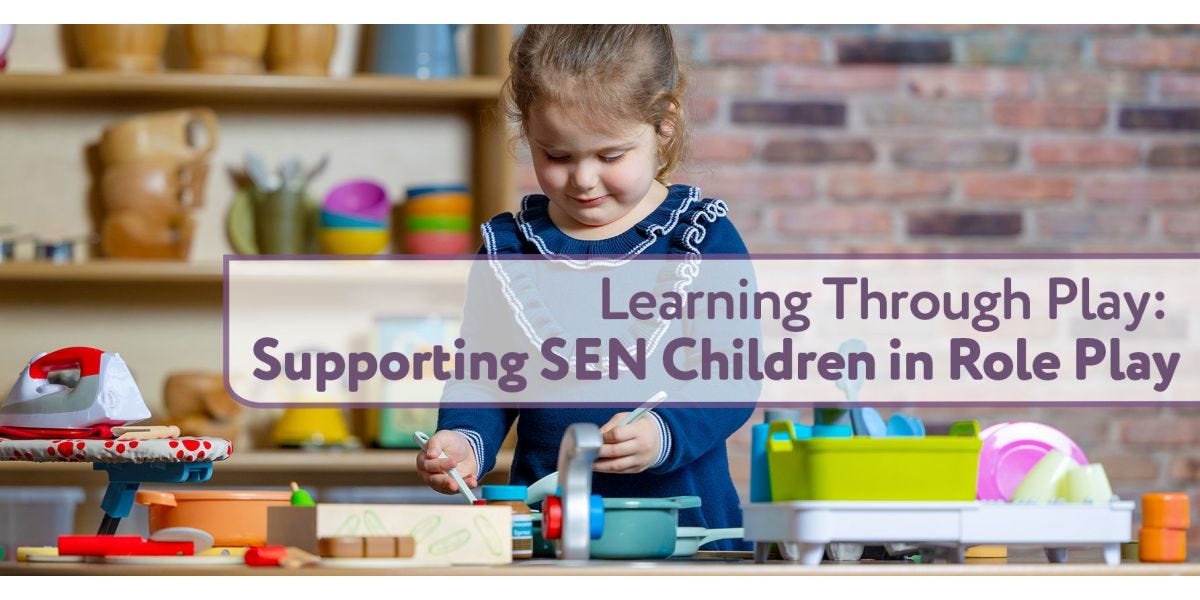Play is such an important part of children’s development and there is an abundance of research telling us why it’s important, what our children learn through play and how play supports holistic development as a child progresses through childhood.
But what if your child doesn’t know how to play? I don’t just mean that they don’t quite understand the rules of a game or haven’t yet mastered the art of turn taking, but if they really and truly don’t know how to play. They can’t identify an interesting toy or material, they don’t know how to use objects given to them in a purposeful way, and if left to their own devices will just stand or sit. Then what?
For children with Special Educational Needs this can often be the reality of their play skills. Our children with SEN can face numerous challenges which make developing play skills more difficult than it is for other children.
Barriers which may impact their play skills include:
Social communication skills
they may not understand skills such as turn-taking or sharing, recognise social cues such as facial expressions and body language, or understand what their peers are saying
Lack of exposure to appropriate peer groups
they may become isolated due to appointments and extended periods of time in hospital, not being able to access the same activities as their peers, or not understanding or being able to communicate with their peers
Sensory processing
they may be over-sensitive or under-sensitive towards touch, noise or movements which may make play overwhelming or unappealing.
Attention
They may not be able to engage or attend to an activity or item for very long or struggle with sitting or standing in one place
Mobility barriers
such as fine or gross motor skills, hand-eye coordination or a physical disability which makes access difficult
Emotional dysregulation
difficulty managing emotions such as excitement, frustration or anxiety during play can result in interruptions or withdrawal from play
Communication difficulties
limited verbal or non-verbal communication skills can impact significantly on how a child engages in play, expresses their ideas, their preferences and their needs during play.
Rigid thinking
Repetitive play may limit extension into other types of play and difficulty with change may make it challenging to join in with new games or different ways of playing
Abstract concepts
Many of our children need concrete concepts to make sense of the world, and abstract play ideas may hold no meaning or understanding towards what it is they are meant to do or what everyone else is doing
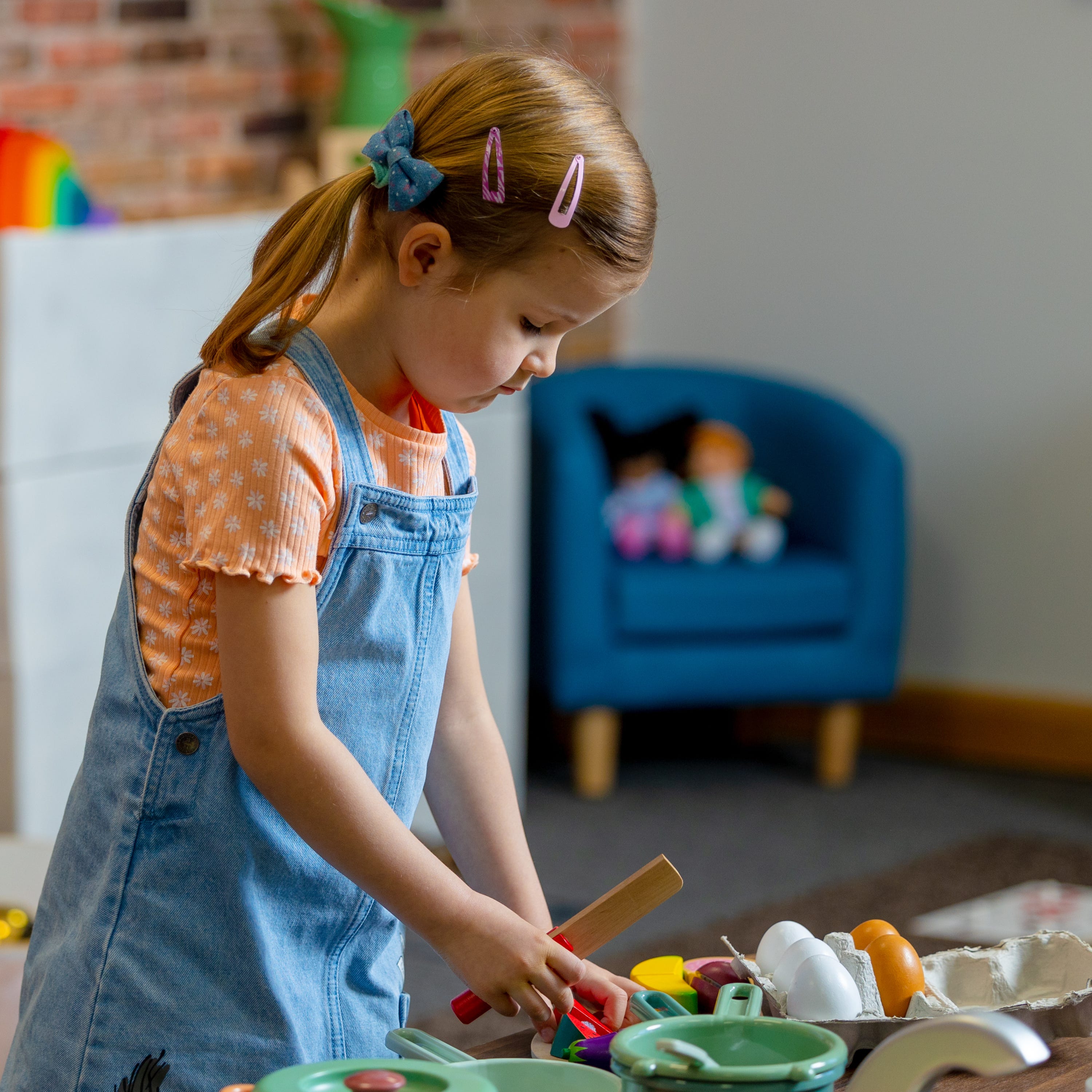

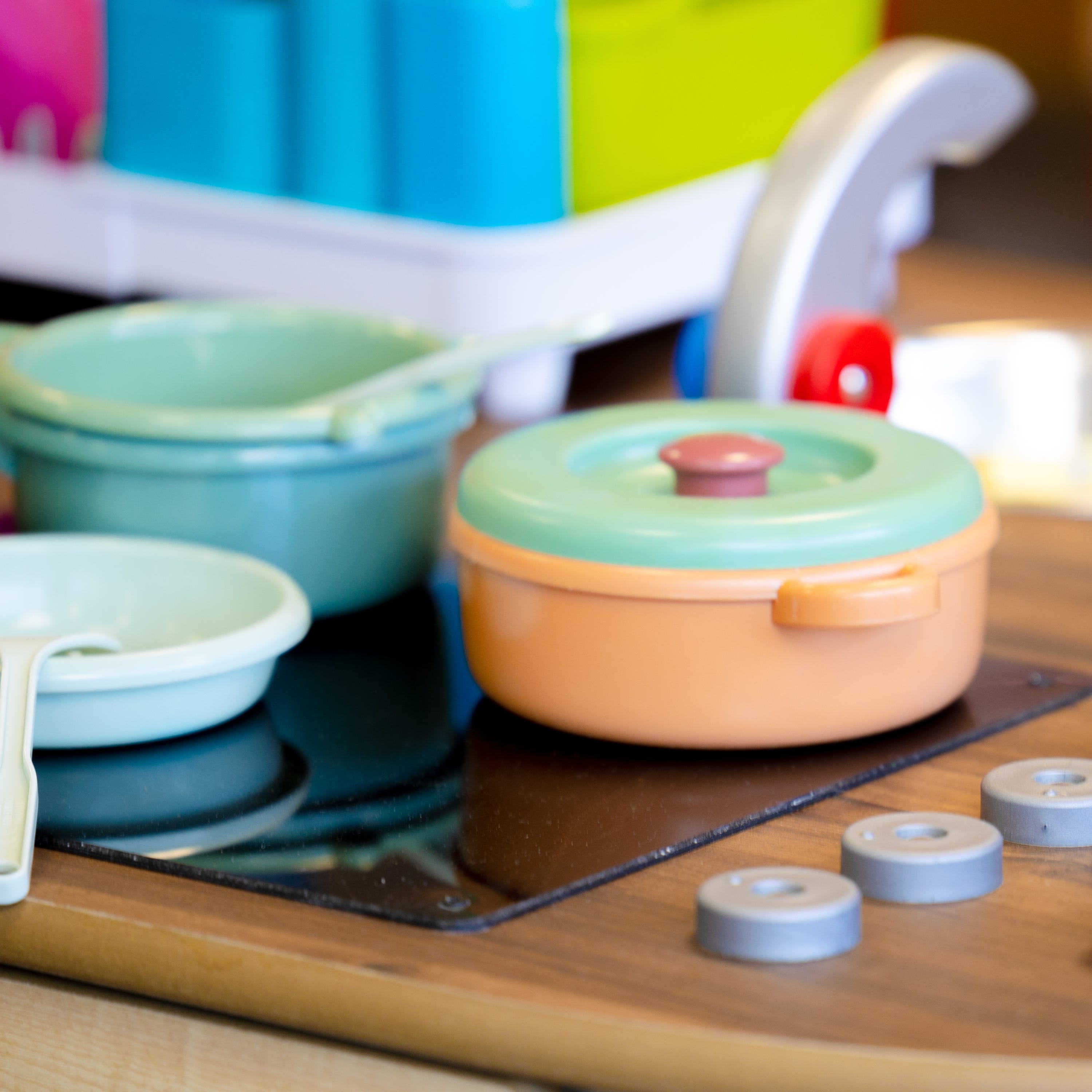

With all of these barriers potentially impacting on their ability to play, our children need us more than ever to support them with play, not turn from it.
Within the school I work at, we teach ‘play & leisure’ as a subject, recognizing that play is still fundamental for our children and that we have a responsibility to equip them with the skills to learn how to learn through play.
Domestic role play resources such as the Dyson hoover and ironing board set that I have introduced to my class this term are great because they are so relatable. Quite often imaginative play can be the area we shy away from most with a child who may find it difficult to play, as imagination requires a wider range of skills to be drawn on. However, we know our children require lots of modelling, and what better to model than how we go about our daily lives. Encouraging your child to join in with jobs around the house or classroom, then providing these resources for them to explore with greater independence, allows them opportunities to practice and have repeat experiences within their play, something we know benefits many of our children with SEN significantly.
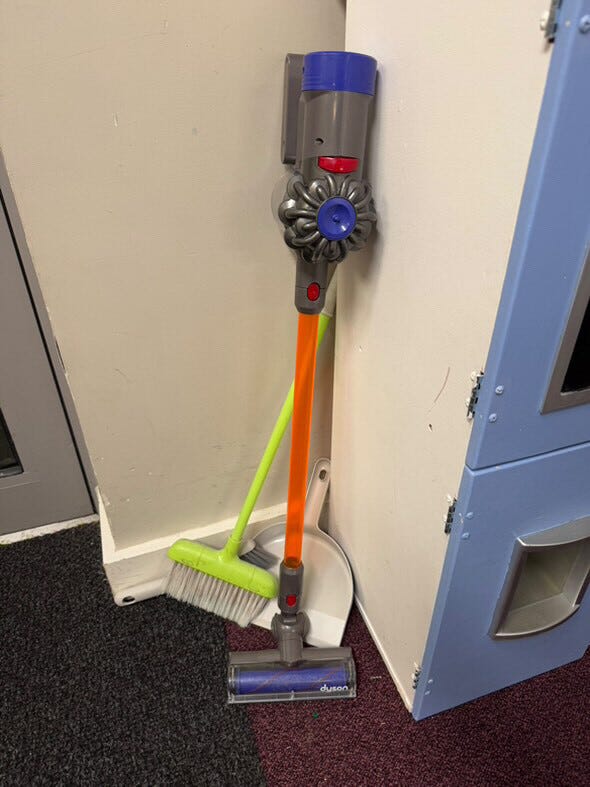

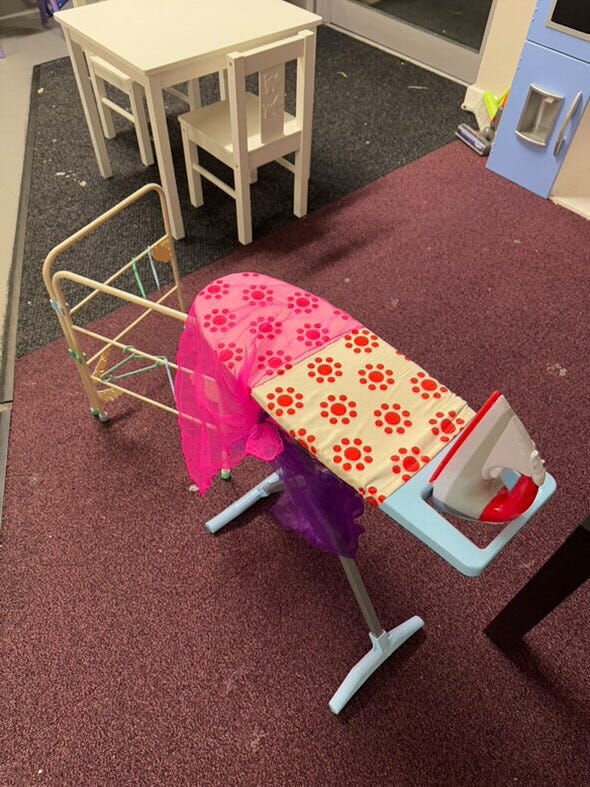

My recommendations for building in domestic role play opportunities with your child or children with SEN are:
Introduce them when you are using a similar item or doing a similar activity. For example bring out the toy hoover when you need to hoover, or the ironing board when you are ironing. You could just have it out and see if your child recognises it, or physically show/hand the toy to your child, asking for their help or using key words such as ‘your turn’ or ‘copy me’.
As they become more familiar with how to use the toy purposefully, start to bring in some other elements to your play. Try making over the top facial expressions for example as you find a bit of dust and then hoover it up!
As your child grows in confidence, you can discover things, such as pulling a never-ending scarf out of your wash basket or pegging up some very oversized pants to iron. You might just mention that you made the magic scarf or that the pants belong to a friendly giant whose washing machine has broken – you might need to highlight that this is pretend if you have a very literal child!
Build storytelling into your play, using what, who and where questions as a way to support your child to develop imagination. It may just be that they are daddy’s or big brothers pants, but your reaction will be key. One day, you might just find out that they belong to an alien and they floated down from space!
Every child deserves the chance to explore, experiment, and experience the joy of play. With the right support, we can empower them to build essential life skills that extend far beyond playtime. Let’s continue to champion play as an essential part of learning for all children.

